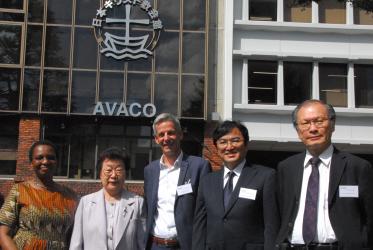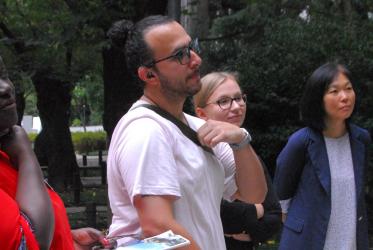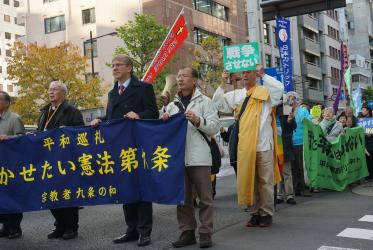Displaying 1 - 20 of 21
WCC commemorates life of Rev. Tsutomu Shoji
02 September 2020
In Japan, theologians reflect on today’s global manifestations of racism
18 September 2019
Pilgrims walk with minorities in Japan
16 September 2019
In Japan, indigenous and ecumenical youth call for action against racism
12 September 2019
Prayer and hope mark anniversary of atomic bombings
05 August 2016
Momentum builds for ban on nuclear weapons
16 December 2014
WCC to host workshop on human rights and nuclear disasters
20 February 2014











